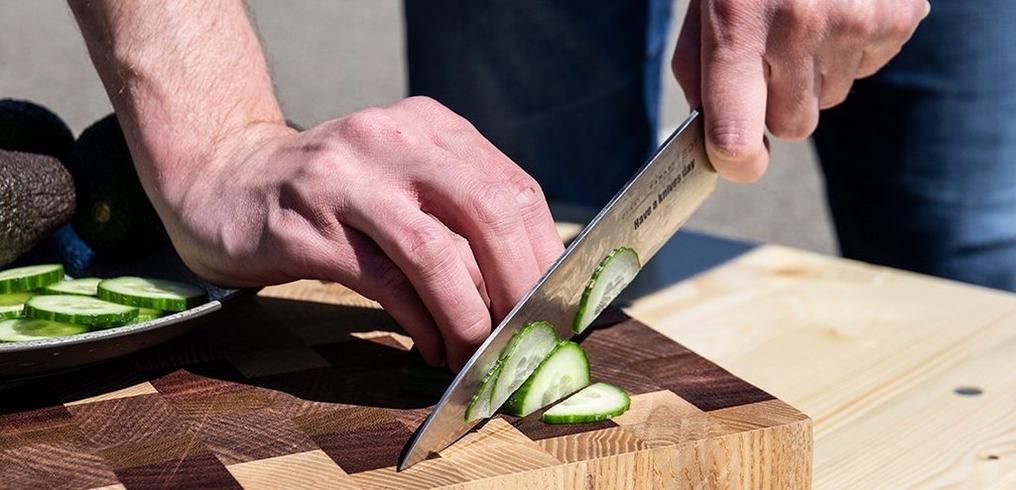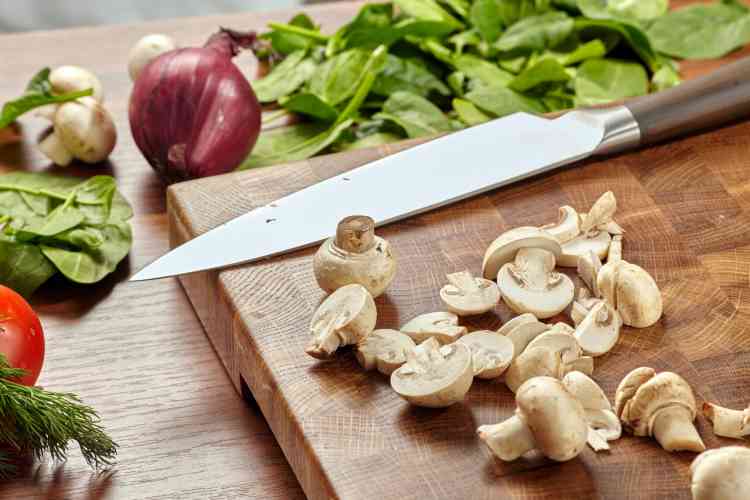In the competitive realm of Michelin star kitchens, the importance of precision, skill, and excellence cannot be overstated. Among the vital tools that chefs depend on are German knives. Famed for their durability, precision, and exceptional craftsmanship, German knives have established themselves as a top choice in the culinary arts, particularly in Michelin star kitchens, where only the finest tools will do.
This article explores the reasons elite chefs favor German knives and how these instruments enhance the gastronomic excellence renowned in Michelin star establishments. Well delve into their history, craftsmanship, and key features that make them indispensable.

The Legacy of German Knives
The heritage of German knife-making, especially from the city of Solingen, spans centuries. Revered as the 'City of Blades,' Solingen has been pivotal in producing some of the worlds finest knives. The legacy of German knives is a tribute to their quality as well as to the artisans who have honed their skills over generations. For more insight into this legacy, explore the history of German knife-making.
German knives are celebrated for their sturdiness and are crafted with meticulous care. Usually forged from high-carbon stainless steel, they offer excellent edge retention and superior corrosion resistance, making them perfect for the demands of a professional kitchen.
Why Michelin Star Chefs Choose German Knives
The selection of tools in a Michelin star kitchen is approached with great seriousness. Chefs require the best, and German knives offer numerous advantages. Heres why they stand out:
Precision and Control
German knives are synonymous with precision. Their well-balanced weight allows chefs to have total control over their cutting techniques, crucial in environments where presentation equals taste. The sharpness and durability ensure that every stroke, slice, and chop is performed with accuracy.
Durability and Maintenance
In the dynamic setting of a Michelin star kitchen, durability is essential. Constructed robustly from high-quality materials, German knives endure through time. Their ability to hold a sharp edge minimizes the frequency of sharpening, which is invaluable in fast-paced culinary environments.
Additionally, maintaining German knives is uncomplicated, making them an ideal choice for chefs seeking reliable tools that require little upkeep.
Versatility
Unmatched versatility is another hallmark of German knives. Whether slicing delicate herbs or deftly handling tougher meats, these knives are engineered to tackle various tasks effortlessly. This flexibility renders them essential in Michelin star kitchens, where chefs frequently adapt to different dishes and ingredients.
The Craftsmanship Behind German Knives
The artistry involved in crafting German knives fuses tradition with modern technology. Skilled artisans utilize age-old techniques alongside contemporary advances to create knives that are both functional and aesthetically appealing.
The forging process entails heating steel to high temperatures before shaping it with precision. This method, coupled with stringent quality controls, guarantees that each knife upholds the high standards required in professional culinary settings.
For a detailed look at the knife-making process, read this guide on knife-making.
Conclusion
Ultimately, the presence of German knives in Michelin star kitchens exemplifies their unmatched quality and effectiveness. Beyond being mere tools, they serve as an extension of a chef's capabilities, allowing for the realization of intricate culinary visions with both precision and artistry.
As the culinary landscape continues to evolve, the enduring appeal of German knives remains unwavering. For culinary professionals in search of tools that seamlessly blend tradition, innovation, and excellence, German knives are undoubtedly a cut above.

FAQ
Why are German knives favored in Michelin star kitchens?
German knives are chosen for their precision, durability, and versatility. Their ability to maintain sharpness and endure intense usage makes them ideal for the demanding environment of a Michelin star kitchen.
What differentiates German knives from others?
German knives are distinguished by their robust construction, high-carbon stainless steel composition, and significant craftsmanship. These attributes contribute to their reputation for exceptional quality and reliability.
How should I care for my German knife?
Proper knife maintenance includes regular cleaning, immediate drying after use, and occasional sharpening to preserve the edge. Additionally, using a honing steel regularly is recommended to keep the blade aligned. For detailed instructions, you can refer to this cleaning guide.
For those interested in other knife topics, check out our articles on blade thickness, sharpening stones, and EDC rotation.


























